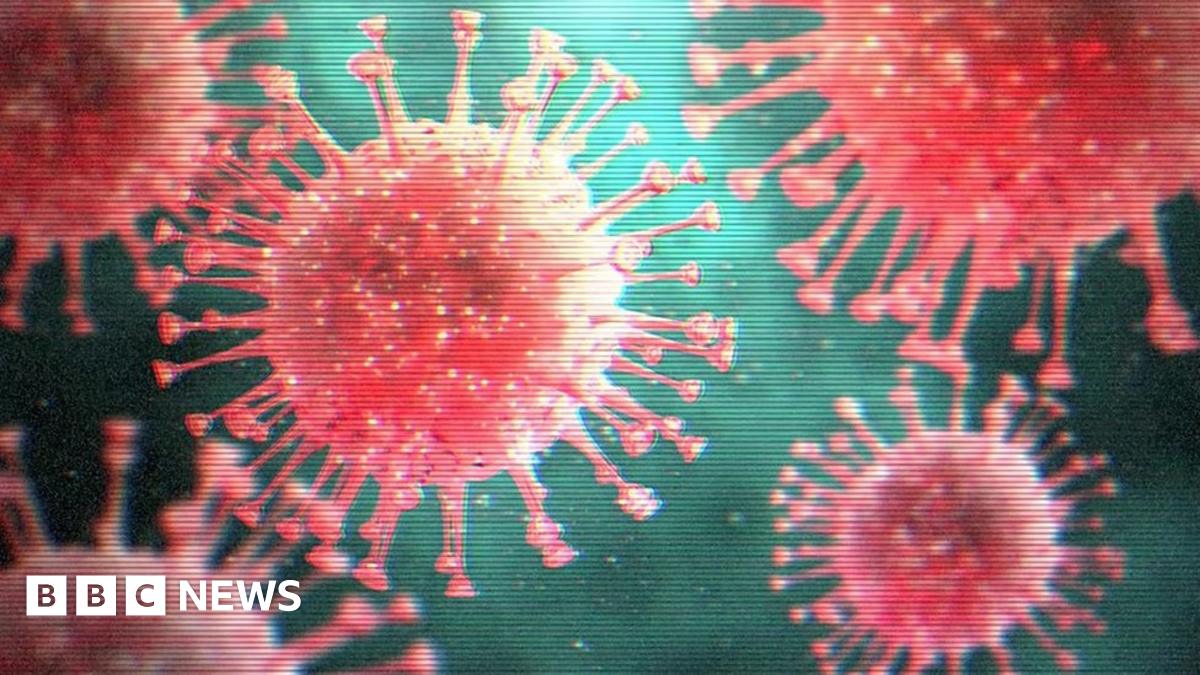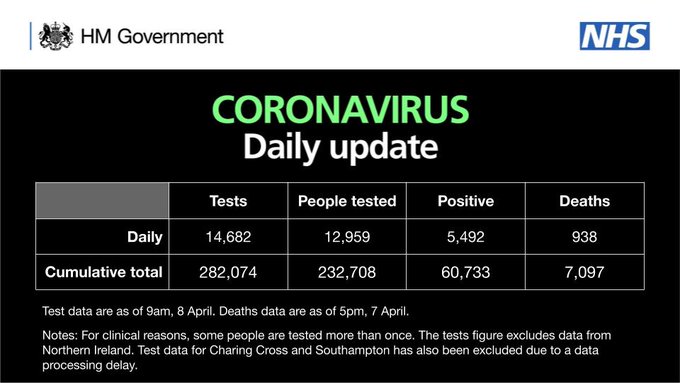Brilliant. Those sorts of kind gesture make lasting memories which help at times like this. It’s good to have happy periods of someone’s life to focus on. It sounds like he was lucky to have a caring brother too.I'm ok thank you. I have the comfort that whenI visited him last in September I was able to give him a very good day.
He'd had to give up driving afew years earlier, so with the weather kind to us I spent a day driving him around all his old haunts where there had been developments that he wanted to see. My e-car was a completely new and enjoyable experience for him too. Then in the evening I treated him to a top class meal of his choice in the best restaurant in the area. He thoroughly enjoyed that day which made a considerable change from his usual routine.
.
Brexit, for once some facts.
- Thread starter flecc
- Start date
Don`t know how genuine this is,... however i think this is a reasonable man and puts his point across extremely well..
He forgot to respectfully add "Sir" at the end.Don`t know how genuine this is,... however i think this is a reasonable man and puts his point across extremely well..
.
Precisely and it would fit in with having trouble finding a suitable antibody test, wouldn't it?That is very serious, if true.
AbsolutelyBrilliant. Those sorts of kind gesture make lasting memories which help at times like this. It’s good to have happy periods of someone’s life to focus on. It sounds like he was lucky to have a caring brother too.
Alas the real pandemic in this country is of stupidity and an inate feeling among them along the lines of it can't happen to me, the figures say it won't, 'cause I'm not in a high risk group.I think the public have chosen 66K deaths.
I suspect that it would have been far wiser not to issue that information, it has turned out to be a huge error, but at that point in time the idea was clearly intending to reassure the public that this isn't a major threat!
As the old saying goes
"The road to Hell is paved with good intentions."
I don’t know about the anti-body test, but if you can have a bout of Coronavirus and develop no immunity to it, that doesn’t bear thinking about. It’s apocalypse stuff. Extinction etc. Maybe that needs filing in the same drawer that Coronavirus is actually a manufactured weapon.Precisely and it would fit in with having trouble finding a suitable antibody test, wouldn't it?
All I can say is that it’s a very new virus and maybe a very reliable antibody tests with a high degree of accuracy and repeatability is not a thing that can be developed overnight?
They need to tell people they are in danger. That this virus is deadly to people of all ages, die from it and you can give it to your mum & dad and kill them too. A bit like the AIDS adverts of the 1980s, show a tomb stone with Coronavirus written on it during every TV advert / programme break, including CBBC.Alas the real pandemic in this country is of stupidity and an inate feeling among them along the lines of it can't happen to me, the figures say it won't, 'cause I'm not in a high risk group.
I suspect that it would have been far wiser not to issue that information, it has turned out to be a huge error, but at that point in time the idea was clearly intending to reassure the public that this isn't a major threat!
As the old saying goes
"The road to Hell is paved with good intentions."
Stay at home, protect the NHS, save lives. That’s too complicated for the average mong to compute. They’ve not got the brain power to join the dot’s up. Why does staying at home protect the NHS? How do I save lives? You can hear the gears grinding.
The message needs to be very blunt.” If you catch Coronavirus, there’s a good chance that you will die or pass it on to a family member who will die. Save their lives and stay at home. Coronavirus is highly contagious. It is not flu, it kills people just like you.”
Last edited:
The message needs to be blunt.” If you catch Coronavirus, there’s a high chance you will die or pass it on to a family member who will die. Save their lives and stay at home. Coronavirus is highly contagious. It is not flu.”

Needs a bit of tweaking but snappy...
Here is my version of the warning
Think you're immune? the bad news is if you get it on you, Coronavirus will make you the killer of your family and friends
Think you're immune? the bad news is if you get it on you, Coronavirus will make you the killer of your family and friends
I am beginning the think there isn't just one virus, or one is piggy backing something elseI don’t know about the anti-body test, but if you can have a bout of Coronavirus and develop no immunity to it, that doesn’t bear thinking about. It’s apocalypse stuff. Extinction etc. Maybe that needs filing in the same drawer that Coronavirus is actually a manufactured weapon.
All I can say is that it’s a very new virus and maybe a very reliable antibody tests with a high degree of accuracy and repeatability is not a thing that can be developed overnight?
It mutates which helps scientists track how it spreads but it is still the same virus.

 www.nationalgeographic.co.uk
www.nationalgeographic.co.uk


National Geographic
Explore National Geographic. A world leader in geography, cartography and exploration.

Coronavirus to be tracked using its genetic code
Scientists are to track the spread of the coronavirus in the UK by using clues in its genetic code.
www.bbc.co.uk
A global pandemic. The PM in intensive care. 1000s are dead. 10s of 1000s of cases in the UK. Millions have lost their jobs. Global economy in a tailspin.
The Express gets its ONE question at the No.10 briefing. It goes with: What are you doing about Coronavirus benefit fraud?
The Express gets its ONE question at the No.10 briefing. It goes with: What are you doing about Coronavirus benefit fraud?
But are the mutations stable? and what causes them?It mutates which helps scientists track how it spreads but it is still the same virus.

National Geographic
Explore National Geographic. A world leader in geography, cartography and exploration.www.nationalgeographic.co.uk

Coronavirus to be tracked using its genetic code
Scientists are to track the spread of the coronavirus in the UK by using clues in its genetic code.www.bbc.co.uk
But are the mutations stable? and what causes them?

Quality control isn't perfect...
The novel coronavirus which is responsible for the emerging COVID-19 pandemic mutates at an average of about two mutations per month.
General Concepts
Genetic Change in Viruses
Viruses are continuously changing as a result of genetic selection. They undergo subtle genetic changes through mutation and major genetic changes through recombination. Mutation occurs when an error is incorporated in the viral genome. Recombination occurs when coinfecting viruses exchange genetic information, creating a novel virus.
Mutations
Mutation Rates and Outcomes
The mutation rates of DNA viruses approximate those of eukaryotic cells, yielding in theory one mutant virus in several hundred to many thousand genome copies. RNA viruses have much higher mutation rates, perhaps one mutation per virus genome copy. Mutations can be deleterious, neutral, or occasionally favorable. Only mutations that do not interfere with essential virus functions can persist in a virus population.
Phenotypic Variation by Mutations
Mutations can produce viruses with new antigenic determinants. The appearance of an antigenically novel virus through mutation is called antigenic drift. Antigenically altered viruses may be able to cause disease in previously resistant or immune hosts.
Vaccine Strains from Mutations
Mutations can produce viruses with a reduced pathogenicity, altered host range, or altered target cell specificity but with intact antigenicity. Such viruses can sometimes be used as vaccine strains.
Recombination
Recombination involves the exchange of genetic material between two related viruses during coinfection of a host cell.
3000 deaths a day in two weeks according to reliable research on france 24 in uk. Perhaps that will burn away some of the happy clappy admiring tory isnt boris and all of us great ***** steaming bs we get to hear on the news every nightYou can't hide the fact we left it too late.
We had the chance and blew it
I think boris and those who voted for his bankrupt populism (and herd immunity) are responsible for this messI think the public have chosen 66K deaths.
Good to see some seemingly very simple ideas tested - and looking good. OK, only one tiny little bit of what is needed, and only the PPE, but...
Abstract
The response to the COVID19 epidemic is generating severe shortages of personal protective equipment around the world. In particular, the supply of N95 respirator masks has become severely depleted with supplies having to be rationed and health care workers having to use masks for prolonged periods in many countries. We sought to test the ability of 4 different decontamination methods including autoclave treatment, ethylene oxide gassing, ionized hydrogen peroxide fogging and vaporized hydrogen peroxide exposure to decontaminate 4 different N95 masks of experimental contamination with SARS-CoV-2 or vesicular stomatitis virus as a surrogate. In addition, we sought to determine whether masks would tolerate repeated cycles of decontamination while maintaining structural and functional integrity. We found that one cycle of treatment with all modalities was effective in decontamination and was associated with no structural or functional deterioration. Vaporized hydrogen peroxide treatment was tolerated to at least 5 cycles by masks. Most notably, standard autoclave treatment was associated with no loss of structural or functional integrity to a minimum of 10 cycles for the 3 pleated mask models. The molded N95 mask however tolerated only 1 cycle. This last finding may be of particular use to institutions globally due to the virtually universal accessibility of autoclaves in health care settings.
https://www.medrxiv.org/content/10.1101/2020.04.05.20049346v1
Abstract
The response to the COVID19 epidemic is generating severe shortages of personal protective equipment around the world. In particular, the supply of N95 respirator masks has become severely depleted with supplies having to be rationed and health care workers having to use masks for prolonged periods in many countries. We sought to test the ability of 4 different decontamination methods including autoclave treatment, ethylene oxide gassing, ionized hydrogen peroxide fogging and vaporized hydrogen peroxide exposure to decontaminate 4 different N95 masks of experimental contamination with SARS-CoV-2 or vesicular stomatitis virus as a surrogate. In addition, we sought to determine whether masks would tolerate repeated cycles of decontamination while maintaining structural and functional integrity. We found that one cycle of treatment with all modalities was effective in decontamination and was associated with no structural or functional deterioration. Vaporized hydrogen peroxide treatment was tolerated to at least 5 cycles by masks. Most notably, standard autoclave treatment was associated with no loss of structural or functional integrity to a minimum of 10 cycles for the 3 pleated mask models. The molded N95 mask however tolerated only 1 cycle. This last finding may be of particular use to institutions globally due to the virtually universal accessibility of autoclaves in health care settings.
https://www.medrxiv.org/content/10.1101/2020.04.05.20049346v1



